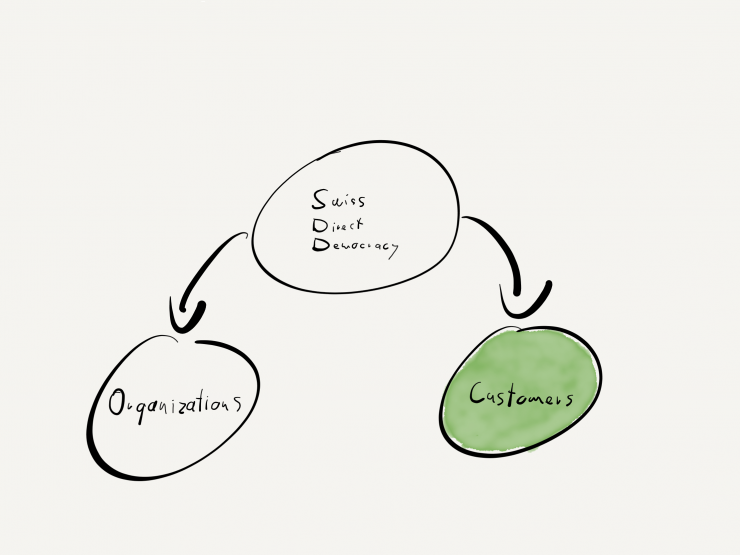In this section I look at how much the co-creative aspect of Swiss Direct Democracy has influenced other areas of life in Switzerland – specifically co-creation efforts of companies (see earlier post) and expectations of customers.
A caveat before we go on: the research in this post is not scientifically representative of Swiss society. It also lack a control group or benchmark to compare against. So it is far from perfect. However, it is indicative of the fact that Swiss people seem to demand more in terms of co-creation than what Swiss organizations are currently offering. The research for this was an online survey.
Respondents were asked whether they would expect companies to ask for customer approval on decisions – a corporate version of Optional Referendums. 72% responded that this would be necessary, one third of this claiming that this is something they have been considering for a while.

A follow-up question inquired about the type of service provider that customers expected would ask for customer approval. Answers showed the legendary ability of the Swiss to be considerate of others – respondents mostly expect this type of co-creation from services that they pay for. The number of people claiming no company should be doing this was lower than the number of people claiming that asking for permission is not something they believe to be necessary.

Respondents were also asked if companies should implement customer proposals – a corporate version of Popular Initiatives. The result was an overwhelming yes, from 97% of respondents.

Finally, two questions sought finding correlation between co-creation expectations, and participation in and satisfaction with Swiss Dircet Democracy (SDD). If anything, critics and rare-voters have even higher expectation around co-creation with companies.
This seems counter-intuitive but it actually makes sense: critics of SDD in Switzerland believe it is not strong enough, rather than debating whether it is needed at all.

In summary, it seems that respondents have high expectations on companies to implement co-creation. This applies more strongly to ‘customer initiatives’, but also strongly to challenging company decisions.




















